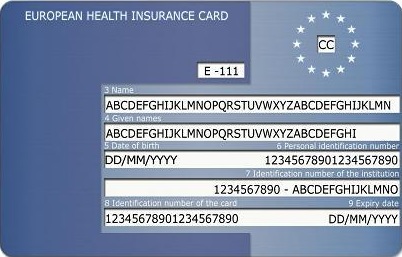Orientation Days 2021
Welcome!
Wroclaw Medical University hereby has the pleasure of inviting you to participate in our Orientation Days for new students, which will be held on 29-30th September 2021 in lecture hall of the Department of Anatomy, street : Chalubinskiego 6A, Wroclaw.
Due to pandemic situation this year Orientation day will be organized according to sanitary standards. Please note that the mask covering nose and lips is obligatory inside building. We have divided students into 3 groups. Students are divided according to their ID number which was given by Online registration system, check it out in your online profile. Program of the meeting is shorted and includes basic and most important topics which have to be presented to fresh students. Schedule (ID numbers) of meetings for each group is presented here :
Group no. 1 – 29th September 2021, 9.00 a.m. List of the Group no. 1 is HERE
Group no. 2 – 29th September 2021, 12.00 a.m. List of the Group no. 2 is HERE
Group no. 3 – 30th September 2021, 9.00 a.m. List of the Group no. 3 is HERE
The lists are prepared according to the number given to you by the IRK system. You can find this number in your IRK profile, just below your name.
We strongly advice you to participate in order to get a good start of your academic adventure in our Uniwersity.
The Orientation Day is designed to assist you, our new student, in settling into the university. You will receive detailed information about schedule, University departments and offices, as well as student life. Our programme also aims to provide you with the opportunity to meet new people and settle into your life here.
Orientation days – schedule
1. Dean's speech
2. First year tutor's speech
3. Q&A
4. Filling documents.
5. Handing students' ID cards
6. City Tour with city guides - afternoon hours, see below
Power Point presentation is HERE
PLACE OF VENUE
The place is Department of Anatomy, Chalubinskiego 6a, Wroclaw, see on the map , gate.
Dear Students, we would like to inform that you must read carefully this :
Study regulations 2021/2022 and The list of prerequisite courses referred to in Art. 44 sec. 3 (3) of Study Regulations of the Wroclaw Medical University effective from the academic year 2021/2022
Resolution No. 233/XVI R/2021 of the Rector of Wroclaw Medical University of 1 October 2021 – Procedure of conduct after professional exposure to HIV, HBV, HCV infection
Resolution No. 238/XVI R/2020 of the Rector of Wroclaw Medical University of 2 November 2020
Resolution No. 35/XIII R/2005 of the Rector of Wroclaw Medical University in Wroclaw of 23 May 2005 - Regarding addiction prevention
Procedure to deal with the CORONAVIRUS epidemic risk for students and employees of all Wroclaw Medical University units.
NEW recommendations on the infection prevention in summer semester
Recommendations for students and employees of the Wrocław Medical University concerning the prevention of SARS-CoV-2 infection for the winter semester 2020/2021
Recommendation for risk of Coronavirus SARS-CoV-2
You will have to confirm that you have read and understood this documents.
Occupational Health and Safety and Fire Protection training and test.
The training on the principles of Occupational Health and Safety and Fire Protection will be conducted online and will last 4 hours. It will end with a test that each student is required to pass. To pass, 80% of the questions must be answered correctly. You can scroll through the test, return to previous questions and slides.
To take the test, you must first set up an e-mail address with the student.umed.wroc.pl domain, because an activation link for the training will be sent to this e-mail address.
Training date: October, 2021
UNIVERSITY Wi-Fi
Eduroam is Wi-Fi network available on our university campus. To connect to Eduroam first of all you have to create your email account on domain @student.umed.wroc.pl. Registration for students email is possible here : https://csa.umed.wroc.pl/#enstudents
Please note that during registration you will need Student record book number which can be found on your Student ID card
Then please visite Eduroam website to get information how to connect : https://cat.eduroam.org/
Health insurance in Poland
European Health Insurance Card (EHIC)

What is EHIC and what does it entitle you to?
The European Health Insurance Card (EHIC) is a document based on which, according to the EU regulations on the coordination of social security systems, a person insured in one of the EU/EFTA Member States and members of their family staying temporarily in another EU/EFTA member state, are entitled to receive healthcare benefits in kind that become necessary during their stay for medical reasons. A necessary benefit should be understood as any benefit that a doctor finds essential to be granted due to the patient’s health condition, so that the patient does not to have to return to their country in order to receive treatment. The benefits under EHIC are provided on the same terms as those provided to persons insured in the country of treatment.
Please note: EHIC does not entitle you to receive the so-called scheduled treatment, i.e. treatment that is the target of a patient's stay in Poland. If you do not have such insurance, then you can sign-up for health insurance from the NFZ (Narodowy Fundusz Zdrowia = National Health Fund), the Polish government health insurance agency.
National Health Fund
We recomend to apply for a health insurance contract with the National Health Fund (Narodowy Fundusz Zdrowia), which is Polish public system. This provides the same health insurance as Polish citizens. Applying you must have student status (after October 1st). More information can be found HERE.
Health Insurance contract NFZ
Cost: (50 PLN/ month)
Where to go: Narodowy Fundusz Zdrowia; Joannitów 6, 50-525 Wrocław
Documents:
1. Passport (current visa or residence card )
2. Certificate from the Dean's Office of Student Status (Polish version)
3. PESEL number (number given at the request of the Wrocław City Hall)
4. at the NFZ you have to complete the application form "optional health insurance coverage"
After receiving an agreement with the NFZ, you will have to go to ZUS (Zakład Ubezpieczeń Społecznych) to register the agreement.
ZUS (Zakład Ubezpieczeń Społecznych) - Social Insurance Institution
address: Bernarda Pretficza 11, 50-930 Wrocław
or
Władysława Reymonta 4/6, 50-225 Wrocław
How to get a PESEL number ?
Where to go: Urzad Miejski Wrocławia
address: plac Nowy Targ 1-8, 50-141 Wrocław
or
Gabrieli Zapolskiej 4, 50-032 Wrocław
Documents:
1. Passport (current visa or residence card )
2. Temporary residence registration form
3. Rental agreement or Temporary residence registration form stamped by the dormitories, confirmation that you live there
The PESEL number is given straight away
If you have any further questions please contact ED office.
Guidebook for newly-admitted students
Dear newly-admitted students, welcome to Wroclaw Medical University. Below you can find a guidebook containing infomation about some important dates, persons, terms and rules applicable at WMU.
Information provided to you during Orientation Days will dispel most of your doubts. Participation in the Orientation Days is obligatory.
Getting ready to begin the studies
Student Identity Card
The fee for the student identity card is PLN 22. It should be paid to an individually generated bank account, the number of which can be found in the "Agreement on the conditions of payment for educational services and other payments related to higher education". The Agreement was given to the students of medicine during the recruitment process. The proof of payment should contain: the purpose of payment (payment for student ID card), first name and surname of the student and his/her major. The ID card will be issued only if the proof of payment has been delivered to the Dean's Office relevant to the major, by 31st October 2021.
Purchasing handbooks and other educational materials
It is not advisable to buy new handbooks for all courses. It is advisable to wait until the first classes when you will find out which handbooks are recommended by the teachers. The handbooks can be borrowed from the WMU Library or bought from senior students, for example during the sale organised by the students at the beginning of the academic year. The senior students can also share their notes or other materials from classes with you. At the library, students can also use the available anatomical models of the skull.
Purchasing clothing and stethoscopes
Students should withhold the purchase until they are advised on the type of clothing required for each major by the year tutor during the welcome meeting . One common item of clothing for all students is the coat for classes conducted in dissection rooms. Only the medical students of the 3rd year and above will need stethoscopes, so is not advised to spend money on them right at the beginning.
Library
In order to sign up at the Library you have to collect your ID card and then register on the website of the Main Library. The Head Office of the library is the Medical Scientific Information Center at ul. Marcinkowskiego 2-6 at the campus of the Clinic.
Savoir-vivre at the University
Dress code for classes
You can wear whatever you like to lectures and seminars, however, make sure not to reveal too much cleavage, and to wear appropriate length skirts or trousers.
Wear clothing required by individual teachers to practical classes at the University - casual, but comfortable/sports clothing/uniform/coat/gloves.
Wear a lab coat and flat shoes to the classes held in the dissection rooms.
Wear a uniform or a lab coat and comfortable shoes - preferably medical ones - to the classes held at the hospital. Tie your hair. Some teachers may ask female students not to paint their nails.
For the classes held at the lab, wear a protective coat and shoes that cover your feet; it is obligatory to tie your hair.
Dress code for exams
Students must wear elegant clothes to exams in order to show respect to the person examining them and emphasise the importance of the moment. Black and white clothing is recommended, however, small, colorful accessories should not be a problem. Men should wear shirts and long trousers, whereas women can choose from a wide variety of apparel: dresses, skirts or elegant trousers paired with stylish blouses. Over time, it will definitely come to you as natural.
How to address the teachers
USING THEIR HIGHEST ACADEMIC or professional TITLE (it is best to look it up at the university website before classes):
Professor, would you mind ... (to every professor and associate professor),
Doctor (persons holding PhDs),
Magister (persons holding Master's degree), unless the teacher himself/herself tells you that it is sufficient to address him/her and Sir/Madam - most often, people holding Master's degrees and PhDs ask students to call them so.
How to introduce yourself
Students who want to contact the Dean's Office or a particular teacher via e-mail or telephone, should introduce themselves properly. Teachers encounter hundreds of students daily, therefore they must know who exactly they are talking to. How should the students introduce themselves? Provide:
your name,
year, degree and mode of studies (especially in the case of the Department of Health Studies)
your major, for example:
John Smith,
student of the first year of medicine, 1st cycle degree full-time studies,
How to write e-mails
You will find here some useful tips on how to address your teachers. Always use the official university email addresses given to each student of our university (ending student.umed.wroc.pl).
Start with:
Dear Professor, Doctor etc.
I would like to kindly request....
or if the teacher is a distinguished professor:
Honourable Professor, ....
Instead of "regards" choose one of the following endings:
"your sincerely", "yours faithfully", "sincerely".
Sign the e-mail at the end, providing your name, surname, major, year and mode of studies, or group number, if the matter concerns a certain class.
Leaving classes
Students do not have to ask the teacher or lecturer whether they can use the bathroom. Leave and return quietly, in order not to interrupt the teacher and the students listening to him/her.
If you have to leave a class earlier, it is a good practice to notify the teacher about this fact before his/her class begins. In the case of practical exercises, you have to ask whether you can leave and if you should do something to make up for the time of your absence.
Eat food and drink beverages during breaks. You can, however, drink water during classes.
Discussions concerning patients
During clinical exercises and internships you will have contact with real patients. You will certainly want to exchange your experiences with other students from your class. It is permitted, but under several conditions:
- do not do this in public places, for example on a tram or in the hospital hallways
- do not use names and surnames
- remember that patients are to be respected, therefore be polite while discussing their cases
- talk about patients only to the students of the university who can learn something from such conversations, not to all your friends and family members.
Jokes
Joking is often a method of dealing with stress in medical professions. Sometimes the humor can be quite black. Remember that the way you joke with other medics may seem appalling to other people. Avoid such jokes first and foremost in the presence of patients and their families.
Who is who at the university
The Rector
The boss of all bosses - manages the university and is the head of it. They have the casting voice in matters related to academic and clinical classes, scientific research or financial matters pertaining to the functioning of the University. They can announce free days for the entire university ( the so-called rector's hours/days). Their official title is: His/Her Magnificence (HM).
Vice-Rector for Teaching Affairs
One of the rector's deputies. They oversee teaching and learning, namely the methods of organising and conducting classes at the entire university. They are the person that the academic teachers answer to. They cooperate with Student's Council and PhD Student's Council. Officially (despite the 'pro' prefix), they are to be addressed as 'Rector'.
The Dean
The head of your department. The department consists of several majors that are thematically related to each other. The dean supervises the curriculum and organisation of teaching as well as finances at the department, sets deadlines for submitting papers and can announce free days for their department (the so-called dean's days/hours). They give their consent to the organisation of scientific and student events held at the department. Officially, they should be addressed as "Dean".
Deputy dean (Vice Dean) for student affairs
One of dean's deputies. They are in charge of solving problems related to the organisation of teaching and learning, diploma theses, scholarships and ideas for organising scientific and students events. Officially, (despite the 'pro' prefix) they should be addressed as "Dean".
Year tutor
An academic teacher who has been appointed to care for groups in your major (your year group). They are responsible for preparing schedules and clinical exercises as well as assigning students to seminar and exercise groups. You can also speak to them about making changes in your schedule, or ask them for help if you are having trouble contacting other academic teachers. You will meet them on the Welcome Day, right before the start of the academic year. In Poland, they are officially addressed using their scientific title, for example: Magister, but most year tutors should not be offended if you address them as Sir or Madam.
Dean's Office Staff
Students believe that these are the people who wield the greatest authority at the university. These persons (or one of them) have been specially assigned to your degree and mode of studies, and are responsible for your documentation. At their office, students sign agreements, obtain student ID cards, submit most applications and ready diploma theses, or receive the certificates of being a student etc. They watch over the deadlines and the correctness of the submitted documents. Officially, address them as Sir or Madame, or, if you want to be very formal, use their title, for example Magister.
Year's prefect
One of your fellow students. To put it quite simply - they are the equivalent of the "class captain". They represent your year group before academic teachers as well as befor the faculty and university authorities. They are a member of the department's Student's Council ex officio. As colleagues, you will be on a first-name basis. This person is elected already on the Welcome Day, and can be replaced at any time. You can become the year's prefect, too.
Group's prefect
Your colleague from the seminar/exercise group. They represent the group before the teachers. One person can hold this position permanently or can be replaced by someone else after a certain amount of time. There are no official elections for this position and not every group has a prefect, but appointing one person for the job facilitates communication and efficient gathering of information.
Chairperson of Student's Council
The student who has been officially elected for the position. They represent all students before the university authorities and cooperate with the deputy dean of studies. They sit ex officio in the university senate. Talk to them about problems pertaining to student rights, and ideas for student campaigns. You can also have an influence on their election, and run in the Council elections in order to support their work.
The Plenipotentiary of the Rector for Students with Disabilities
An academic teacher appointed by the Rector to be responsible for caring for the rights of students with disabilities, and ensuring that these rights are respected.
Classes, exams, grades
Lecture
Classes during which the teacher communicates his/her knowledge orally and, usually, shows a presentation. The task of the students is to listen, take notes, ask questions and answer those posed by the teacher. Lectures are conducted for students of the entire year group, and participation in them can be mandatory and verified by attendance lists.
Seminar
Classes that requires greater involvement on the part of the student. Seminars are conducted in the form of presentations and discussions. It is often necessary to prepare for the seminar beforehand, for example read a certain text which will be the topic of discussion. Seminar groups usually consist of a dozen or so or even several dozen people.
Exercises/laboratory exercises/simulation exercises
Practical classes that require students to become deeply involved. They are conducted on the premises of the University. Students work on the available preparations, phantoms or on each other. It is of utter importance to regularly revise the acquired knowledge before every class. These classes are usually designed for small groups of several students.
Clinical exercises
Practical classes held on the premises of clinics and hospitals. During these classes you will be in contact with real patients. Depending on your year group and teacher, the classes can consist of theoretical introductions, observations of medical personnel performing their duties, taking medical history independently and performing certain procedures under the supervision of the teacher. Clinical exercise groups usually comprise 6 students.
Internships
They most often take place during summer holidays, but sometimes also between the semesters. They consist in performing professional activities indicated in the internship curriculum under the eye of a supervisor. The supervisor is a person from the medical staff employed at the unit in which you are doing your internship. You can do the internship at the facilities provided by the university or at a facility chosen by you. Depending on the facility, you can be the only intern or a member of a larger group.
Exam
A method of verifying students' knowledge of most important subject during the examination session. It can be either theoretical or practical. Not every subject that you study during the academic year ends with an exam. Exams cover the knowledge from lectures, seminars and exercises related to a given subject. Should you fail the first sitting of an exam, you have the right to a resit. If your teacher agrees to it, the exam can also be set for an earlier date, in which case it is referred to as an "early exam". Should you fail it, you are still entitled to participate in both the first sitting and the resit. At the end of the studies, most majors at Wroclaw Medical University also end with professional exams that authorise the alumni to practice their profession, or constitute a basis for selecting a specialisation.
Tests
The word "test" translates into "kolokwium" in the Polish language, hence it is also known as "kolos" or "koło" among the Polish students. Tests are a written form of knowledge verification. They resemble tests you took at high school, but comprise larger amount of material. They are usually among the components that are required to pass a given course.
Quizzes at the beginning of classes
Short check-ups that take place at the beginning of exercises or seminars. They can be either written or oral. Sometimes they determine whether or not you can stay for the rest of the class. They are used by academic teachers in order to motivate their students to study on a regular basis. The reason for using this type of check-up is the fact that sometimes you have to have certain theoretical background in order to understand the topic of the class.
"Pins"
A form of knowledge check typical for practical classes at the dissection room. It involves an anatomical preparation with multiple pins that are stuck into it, marking important structures. The student's task is to say which anatomical structure is indicated by each pin. It can be written or oral.
Grades
You will be graded on a scale from 2 to 5, where 2 means fail. There are no specific regulations that determine what percentage of correct answers translate into a given grade. Everything depends on the teacher who will inform you about grading rules before each test or exam. In most cases, you will need to score 50% of answers plus 1 point in order to get a 3, which is a minimum required to pass. The year-end grades will be entered into your course record, in the electronic or paper form, depending on your major.
GOOD LUCK !
CITY TOUR INFO:
Meetin point 30th September 2021 at 5 p.m. next to St John the Baptist Cathedral (see map) - tour for 2 hrs
Visit at Ostrow Tumski – the oldest part of Wroclaw where episcopate was established in the year 1000 – with numerous Gothic churches, the most precious of them St John the Baptist Cathedral, founded in 1244, contains remains of the first, Romanesque church.
Walkthrough the Old Town with beautiful Town Hall erected in 1241, now a museum, and many picturesque Renaissance and Baroque tenement houses.
DATA PRIVACY NOTICE
/for personal data obtained from data subjects/
Pursuant to art. 13 of the Regulation (EU) 2016/679 of the European Parliament and of the Council (the General Data Protection Act, hereinafter the GDPA) we would like to inform you that:
-
- The Controller of your personal data is Wrocław Medical University (Uniwersytet Medyczny im. Piastów Śląskich we Wrocławiu), with its registered office located at: Wybrzeże Pasteura 1, 50-367 Wrocław, hereinafter referred to as „Data Controller”, represented by the Rector;
- The Data Controller has appointed a Data Protection Officer, who may be emailed at iod@umed.wroc.pl in any issues related to the processing of personal data;
- Your personal data will be processed for the following purposes:
- to carry out of the process of education, e.g. to issue student identification cards, keep records on progress in studies, grant financial support, grant accommodation in dormitories, organise internships, handle the matters of the student self-government and student organizations,
- to perform the concluded agreement,
- to perform the Data Controller’s duties related to accounting, statistical and other reporting,
- to carry out the marketing of services offered by the Data Controller,
- to ensure the security of people and property using visual monitoring,
- to archive data;
- Your personal data are processed under the following legal basis:
- art. 6 par. 1 letter a) of the GDPA, i.e. your consent to the processing of personal data, also for the purposes specified under item 3 lit. d). Your consent will be requested from time to time, and the purpose of processing will be indicated in every request of this type, in the case when there is no other legal basis for the processing of your personal data.
- art. 6 par. 1 letter b) of the GDPA, i.e. the agreement concluded between you and the University,
- art. 6 par. 1 letter c) of the GDPA, to satisfy the legal obligations imposed on the Data Controller under the Act on Higher Education and Science of 20 July 2018 and other regulations which are effective for the Data Controller, including the obligations related to accounting, archiving, statistical and other reporting,
- art. 6 par. 1 letter f) of the GDPA, i.e. to pursue a legitimate interest of the Data Controller, which is to ensure the security of people and property by using visual monitoring;
- Your personal data may be made available by the Data Controller to: internal organisational units of the Data Controller, entities which provide services to the Data Controller under concluded contracts as well as other bodies or entities authorised under separate regulations;
- The Data Controller may entrust the processing of your personal data on behalf of the Data Controller to another entity under a written agreement and such entities will include, in particular, entities which provide and maintain software used for processing of student data;
- The Data Controller will store your personal data during the process of education, and for the period of 50 years after its completion, unless separate regulations require any different periods of data storage. However, in the case when the processing of data is based on your consent, the data will be stored until your consent is revoked;
- In the events, under the terms and conditions and in the manner specified in the effective regulations, you have the right to demand that you are given access to the content of your data, that you have your data rectified (art. 15 and art.16 of the GDPA ), erased (art. 17 of the GDPA ) and that the processing of your data is restricted (art. 18 of the GDPA ); you may object to the processing of your data (art. 21 of the GDPA ) or to the transfer of your data (art. 20 of the GDPA ) and you may also revoke your consent at any time, which will not affect the legal compliance of the processing carried out before your consent has been revoked;
- You have the right to lodge a complaint with a supervisory authority – President of the Personal Data Protection Office – if there is a suspicion that personal data may be processed by the Data Controller in an unlawful way;
- You are obliged to provide your personal data under the Act on Higher Education and Science of 20 July 2018. Your failure to do so will make it impossible to carry out the process of education. Any personal data required in addition to that will be provided on a voluntary basis but such data will also be necessary for the specific purposes for which they are collected.
- Your personal data are not subject to automated decision-making, including profiling, referred to in art. 4 item 4) of the GDPA, which may be defined as any form of automated processing of personal data consisting of the use of personal data to evaluate certain personal aspects relating to a natural person;
- Your personal data may be transferred to a third country (i.e. outside the EEA) or an international organisation, under the terms and conditions specified in the provisions of the law.





